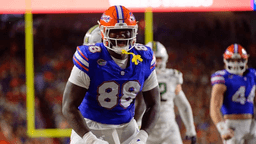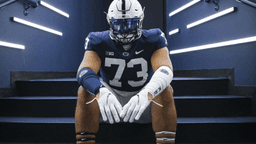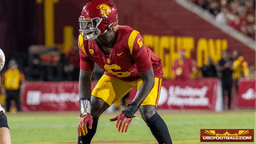What will the Atlanta Hawks do with first pick?
Why owning the No. 1 overall pick is a good omen for the Hawks
1y

Photo: New York Post
The Hawks are on the clock.
Coming off a 34-win season, the Hawks are a franchise struggling to regain its footing. After years of mediocrity, there was excitement over a surprise run to the Eastern Conference Finals guided by an ascendant Trae Young. That was followed by two first round playoff exits and then this year’s ouster in the play-in round.
Victory via the NBA Lottery gives the Hawks the No. 1 selection in the NBA Draft this month – though this may be mildly tainted by the consensus view that this is a less-than-stellar draft class – and, as a 34 win team, they are the best squad to win the top pick this millennia. Such a status, especially given the fact that they have a star (Young) already on the roster, could mean a quicker than average turnaround.
While we will explore the Hawks specifically on this site, Draft Nation takes a quick look at what, in recent history, having the No. 1 overall pick means.
In the short term, it indicates that a team is getting an impact player. Since the 2000 Draft, very few top selections were “bad” in their rookie season. One could certainly make the case that Kwame Brown, Anthony Bennett, and Markelle Fultz fit into that category. Who knows what could have happened with Greg Oden, and players like Blake Griffin and Ben Simmons sat out year one with injuries.
That said, most top picks immediately help their franchise. In fact, nine out of the last twenty-four (since the 2000 Draft) No. 1 picks have won the Rookie of the Year Award outright.
Contrast that figure with the NFL’s four of the last twenty-four.
What that has meant for the franchise is also significant. On average, a team’s record improves by 9.2 wins after making the #1 overall selection. When factoring in that a team bad enough to pick first the year before, the number is not as impressive, but, still, it’s a positive harbinger of things to come.
Only four teams in the last 24 years have gotten worse after selecting the top pick. If the Hawks hold to the average improvement, they project to win 45 games next year – which would have done very little for them in terms of seeding this last year. However, a 14-game improvement (just five over the average), would have made them a second seed in the Eastern Conference.
Seeing a win increase of 14+ has happened eight times over the last 24 years – certainly a doable feat.
In fact, that 14-win improvement is the average two years after a No. 1 overall selection, meaning, should the Hawks simply perform as expected, they would be a 50 win team for the 25-26 season.
That’s the good news.
Now, here is the downside. On average, the #1 overall selection only stays with his initial team for five seasons – though Draft Nation does not include Zion Williamson, Anthony Edwards, Cade Cunningham, Paolo Banchero, or Victor Wembanyama in these totals. Perhaps they will break they trend, but, for now, Karl Anthony Towns is an outlier and the longest tenured #1 overall selection with his drafting franchise since the 2000 Draft.
Even more disheartening, only one No. 1 overall selection (Kyrie Irving) has won an NBA Championship during his initial stint with his drafting team (LeBron coming back to Cleveland shouldn’t count here). Overall, the numbers from winning the Lottery show that brighter days are ahead for a franchise, but recent history shows that it’s very rare for a team to be able to fully capitalize on the selection. Even if they get the pick right, there is not recent evidence to show that a team can be built around that player in a way that keeps them there and winning long term.
Will the Hawks break the trend?
A better foundational roster could make that a distinct possibility.
However, Atlanta is not exactly a storied basketball franchise, and this isn’t exactly a lauded draft class. It remains to be seen whether this will be the game changer fans could hope for.





Comments:
Log in or sign up to read and post comments.